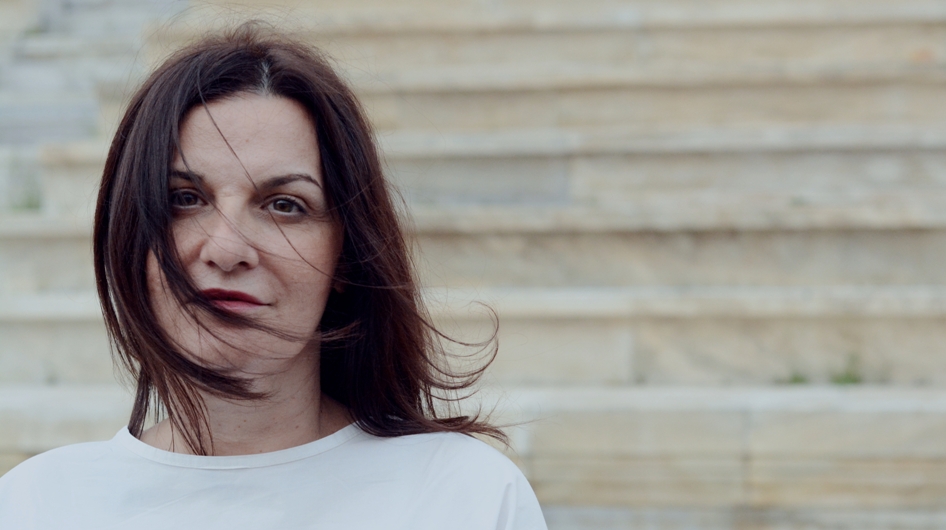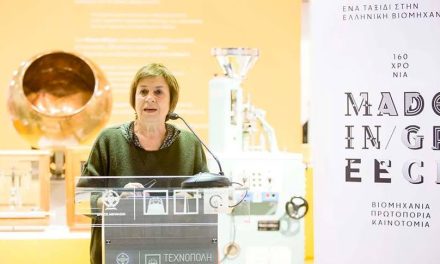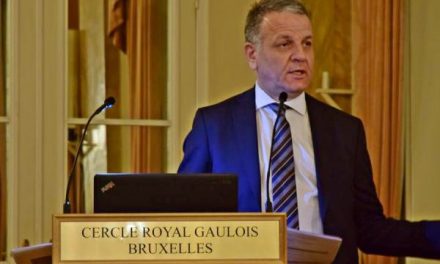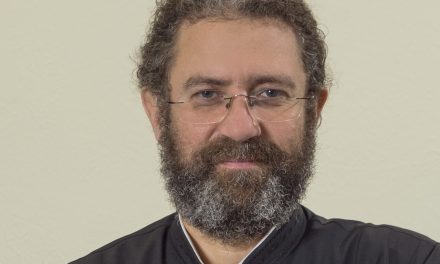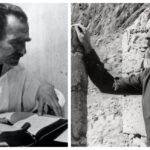Dimitra Vassiliadou is a social and cultural historian of modern Greece, and has published on the history of the family and sexuality, the history of emotions, masculinities and autobiographical discourses. Currently, she is a Post-doctoral Fellow at the University of Athens, and teaches at the Hellenic Open University.
Her latest book “The Tropic of Writing: Family ties and Emotions in Modern Greece, 1850-1930” (in Greek: Στον τροπικό της γραφής Οικογενειακοί δεσμοί και συναισθήματα στην αστική Ελλάδα, 1850-1930, 2018) based on large collections of private letters of the late nineteenth and early twentieth centuries, traces the emotional cultures of middle-class families in Athens. Her ongoing project “Forbidden Emotions: Melancholy and Family at the Turn of a Century” focuses on autobiographical discourses of melancholy, and explores the historical transformation of a disorderly emotion into a disease. As a member of a research team based in the University of Crete that works on the History of Sexuality in twentieth-century Greece, she is researching sexual violence in the Interwar period.
Dimitra Vassiliadou spoke to Rethinking Greece* about love as the prescriptive element of family bliss in turn of the twentieth century Greece, the Western ideal of the “emotional family”, how ethnographies of rural families in Greece connect to her work on upper middle class families in Athens, individual and collective emotions as levers for historical change, the idea of “healthy” and rational love as the only path to a successful marriage, as well as the gradual acceptance of the corporality of marital love in early twentieth century. Furthermore, she discusses her latest research on sexual crimes in Interwar Greece and how victims and perpretrators alike navigated the legal system of the time. Finally, she talks about the organization of the recent Histories of Sexuality conference, concluding that the gender perspective is finally gathering momentum in Greece as more young researchers are using the analytical tool of gender in research and projects that can be categorized under the “history of gender” are proliferating.
The subject of your book is the formation of family ties, mainly within the Athenian upper middle classes, from the late 19th to the early 20th century, when the ideal of the ‘emotional family’ becomes dominant. Could you tell us more about this ideal?
In my work, I see the family as one of the emotional communities (an analytical concept introduced by medievalist Barbara Rosenwein) that people inhabit during the course of their lives. The emotional community of the middle-class family at the turn of the twentieth century in Greece fostered and encouraged specific emotional behaviors in its members, while it criticized or rejected others. The central working hypothesis that runs through the book is that “love”, as a state of things – that is to say, as emotion, action and affinity – was firmly endorsed by the emerging Greek middle classes of the nineteenth century. Love represented a central metaphor and a symbol, and gradually became the prescriptive element of family bliss.
Nonetheless, the “emotional family” as an ideal is a construction of Western modernity: modern societies saw family as a world of affection and emotion, the idea being that this was not available in the past. The argument was that during the early modern period, parents were not emotionally attached to their children, as infant mortality rates were high. At the same time, marital affection and companionship were thought to have been only a sporadic and random phenomenon, as marriage was in most cases determined by economic criteria.
According to this scheme – that remained dominant among historians until the 1980s – the coming of the modern industrial era set forth the transition from the pragmatic to the emotional family. From this time onwards, free, individual choice of marriage partner prevailed, and family relationships were rife with rich and profound emotions. Positive emotional experiences were recognized as the gratifications and privileges of domestic life and were identified predominantly with women. At the same time, public life, male par excellence, was now perceived as an emotionally bare place of tough competition.
In recent decades however, historians of the early modern period have convincingly demonstrated that the “emotional family” was not new in the Western world. People expressed their emotions in earlier times too, but in distinct ways and means, i.e. using different emotional vocabularies. In addition, it became clear that emotions cannot be attributed exclusively to the private or the public sphere, nor linked solely to one or the other gender.

Rural Greece has been the inspiration for several social anthropology contributions to the analysis of gender and family relations (John K. Campbell, Ernestine Friedl, Juliet Du Bouley, Marie-Elisabeth Handman). How does your research on Greek urban upper middle class families relate to these works?
Ethnographers of kinship and family were the first who recognized the social character of domestic affairs, underlining that family ties are not “natural”, a-historic entities with a fixed and universal content, but are constructed socially and culturally, and are therefore subject to change. Although primarily focused on small-scale rural communities in Greece, ethnographic research provided, from the 1950s onwards, an abundance of analytical tools for cultural understandings of kinship. Numerous studies have focused on the Greek family, its kinship systems and the ambiguous ways they operated across gender lines. These early ethnographers analyzed dominant perceptions of masculinity and femininity in kinship relations, identified family as a community of interest, perceived marital strategies as an exchange between groups, and, finally, conceptualized marriage as a reciprocal and complementary, albeit hierarchical, relation.
My conversation with these rich ethnographies has been effortless and productive. Let me elaborate on that, with an example from my research on middle-class Athenian families. Acknowledging the centrality of marriage, I turn to the dominant discourses of the time regarding spouse selection and the ambiguous and inconsistent correlations between “emotions” and “interests”. The idea that deep emotions could jeopardize material aspects of human relations, as well as its opposite, the fear that serving material interests could lead to the corruption of moral sentiments, were both common beliefs of the time. In the end, families managed to harmoniously synthesize material interests with emotional needs. This line of thought draws on Bernard Vernier‘s findings from his ethnographic research on the 1970s island of Karpathos on first-born and last-born daughters. Vernier highlighted the ways in which last-born daughters who were forced to invest their interests in the household of their first-born sister, transmuted their exploitation and unpaid work to a selfless offering to their family: interests and emotions were inextricably linked.
But what can be said of this close affinity of historical research on the family relations of the Greek bourgeoisie in the late nineteenth, and early twentieth century with the ethnographies of rural Greece many decades later, and despite the radically different historical contexts? Does it give us an insight into the diffusion of cultural patterns among different social categories over time?

Your research seems to introduce a history of emotions approach to Greek historiography. What does this approach signify?
Over the last few decades the history of emotions has emerged as a dynamic field of historical research; emotions have ceased to be viewed as the poor relations of reason, as researchers today agree that dualities such as “reason/emotion” or “mind/soul” are culturally constructed, and stress the need to complicate these binaries in order to fully understand people and their societies in the past. The history of emotions leads us to the heart of human existence, recognizing that emotions, both individual and collective, are levers for historical change. In other words, if being human means to experience joy, pleasure, pain, sorrow, anger, etc., it is essential to acknowledge the different meanings attached to these emotions, the social values they reflect, the individual and collective practices they trigger (as emotions are not just something we “feel” but also something we “do”), and finally recognize how all the above, affected social, political and economic life in the past.
Up until now, this approach has been applied only sporadically in Greek histories and historiographies, meaning that a coherent analytical or methodological body of work was not available. However, since I am interested in the cultural formation of family ties in Greece from the mid-nineteenth, up to the first decades of the twentieth century, the history of emotions was the only plausible research path to follow. In my book I illustrate the emotional culture of family relations, reflecting on notions of gender and kinship and exploring the needs, expectations and hierarchies they expressed and/or produced.Furthermore, I query the emotional vocabulary individuals embraced, and, paraphrasing J. L. Austin, I seek how they learned to “do things with emotions” within the family realm. I attempt to answer these questions using the methodology of “history from below”: Firmly grounded in five large bodies of family correspondence, I trace the individual voices of men and women, fathers and mothers, sons and daughters, brothers, lovers and spouses. The explicit choice of exploring human relationships through the intimate reading of private correspondence, offers rare insights into individuals reflecting on themselves, their relations with specific others, and the world around them.

The use of emotive language in family correspondence is ever-present and varied; however, the word “love”, is often used excessively to signify whatever is understood as the essence of family ties. Love, whether conjugal, motherly, paternal or brotherly, constitutes a recurring pattern for people at the time, guiding their actions and forming the bedrock on which the complex and contrasting meanings of the family ideal are developed.
But, what kind of “love” and how much of it, was considered appropriate for a successful marriage? If we problematize the juxtaposition between reason and emotion, arranged marriage and free choice, appreciation and love, utilitarianism and altruism, we see that understanding these dualities as polar opposites obscures the complexities and ambiguities attached to choosing a life partner. It seems that for middle-class couples and their families, the boundaries between arranged marriage and free choice were in constant negotiation.
During that time, rational marriage was considered far superior and preferable than the emotional one, and this pragmatic vision of the bourgeois marriage imposed the total rejection of romantic love (eros) as “noxious”, devastating and uncontrollable. The need to ensure long-lasting and stable marital relationships dictated qualifying moral, logical and “healthy” love as more valuable. Besides, romantic love could break all established hierarchies and prohibitions, bringing together two incompatible people, with different upbringing, characters and social positions. A marriage union not based on socio-economic compatibility was doomed to fail and destabilize the very foundation of society.
During the second half of the nineteenth century, this kind of compatibility finds in Greece, as elsewhere, its absolute expression in the ideal of companionate marriage. This model identified distinct but complementary qualities in the two sexes that were, depending on the context, god-given, natural, or scientifically proven. However, this idealized image of the marital relationship, in practice condemned to obscurity the power relations and the hierarchies behind the moral values of companionship and reciprocity.

How did the gender transformations of the first decades of the 20th century in Greece (massive admission of women to the workplace, enrichment and intensification of women’s demands) influence the expression of sexuality and the hegemonic patterns of femininity and manhood?
As mentioned above, during the nineteenth century, marital love was consistently understood as antagonistic to erotic desire and sexual longing, even if the only acceptable sexual activity at the time was conjugal sexuality. This uncomfortable co-existence was the reason for stifling any explicit written reference to corporeal erotic desire. This was especially true of middle-class women, who were described either as unable to control their lascivious nature or as completely impervious to sexual urges. Strongly influenced by the moral imperatives of a theological / ecclesiastical vernacular, the predominant discourses of the time normalized sexual desire by turning it into “love”.
These beliefs seem to be shifting considerably in the first decades of the twentieth century, especially in the interwar years. The body is now resolutely present, not only in the letters but also in the lives of couples, as their love expands to include sexual desire. Perhaps, sexual relations are beginning to be perceived as ties that can further strengthen marital affection, where previously they were understood – at best – as its physical consequence.
These changes are of course connected to wider transformations that occurred in Greek society during this period. By way of illustration only, we can note the dynamic presence of women in the public sphere, now compounded by demands for participation in the workforce and politics, in practices of mass consumption and in commercialized entertainment. These phenomena could not leave the private sphere and everything associated with it unaffected.
The changes I observe in marital sexuality, the most common – as well the least divulged – sexual experience of people of the time, could be also associated with the proliferation of public discourses, especially in the field of medical science, advocating openly, perhaps for the first time, the need for some kind of a sexual education for men and women. Undoubtedly, these discourses were strongly tainted by the dominant anti-hedonist ethics of the time. However, no one could control how these texts would be interpreted by their intended readers and what personal practices they could lead to. For some people, instead of numbing their sexuality, these medical texts could instead have encouraged them to explore it.

Is the ideal of the emotional family still alive today in Greece?
I think there is one thing we can be sure of: even a cursory glance at past and present discourses on the family is enough to ascertain that intimate relations in Greece are normatively framed almost exclusively in positive terms. That is why, whenever positive emotions are absent from the family, this is condemned first individually, and then socially and institutionally. I think this dimension emerges very clearly in the proliferation of modern cultural texts on the dysfunctions of the Greek family, as demonstrated in the recent work of Dimitris Papanikolaou, “There is something about the [Greek] family”. Reading his interview in Rethinking Greece, I realized that what we call Greek exceptionalism continues to shape the terms of almost every conversation on modern Greece, even when it is identified – as does Papanikolaou – as a cultural construction. I am in agreement with him that this is the most interesting aspect of Greek exceptionalism.
Moreover, for us historians, “Greek exceptionalism” is one of the most common discourses to be found in primary sources, as well as in recent scholarly work. It is, for example, the stereotypical answer to almost every question on individual and collective identities, offered as an explanation of either “Greek greatness” or “Greek misfortune” – depending on the context. In the specific field that I study, the cultural history of middle class families at that time, I was not surprised to find out that family relationships and their emotional economy in Greece were, far from any national exceptionalism, absolutely comparable to the examples of other Western countries of the same period.
But to return to the question of the “emotional family” ideal today. There is no doubt that the community of emotions constituted by the modern Greek family differs significantly from that of the middle-class family at the turn of the twentieth century. Even if we accept that “love” in the family is a pre-existing frame of meaning, we need more specialized research to reveal what kind of emotional economy it produces nowadays.
Your current project focuses on sexual crimes in interwar Greece. Would you like to talk to us about the primary findings of your research and the wider issues they highlight?
Very recently, as part of the research program of the University of Crete, “Towards a History of Sexuality of the Greek Twentieth Century: Practices, Discourses and Identities”, I have focused on the study of sexual violence in Greece from 1914 to 1940 based on court cases from the Aegean islands. Although I am still at the very beginning of what is shaping to be a much wider research project on sexual violence, and to the extent that our historical knowledge of sexual offenses in Greece is still almost non-existent, I posed some quite elementary questions. My main goal is to place the Greek case study within the context of international research on sexual violence, albeit not as a historical exemption but as a historical problem. Under the criminal law in force during the Interwar period, rape fell within a category of offenses against public morals, meaning that it was an offence against the state. We will have to enter the post-war period to recognize rape in Greek criminal law as an offence against the person (today, against sexual freedom).
In any case, rapes are part of what we call the “dark figure” of crime: not only because the incidents that come to be reported are scarce but also because even when rapes become the subject of a historical study, the trauma they caused is not easily revealed. However, if we associate specific court cases with the broader sexual culture of the time, we can see that some common discourses on rape that seem immutable and, therefore, timeless, actually have a history.
During the Interwar period, for example, the boundaries between consensus and coercion, violent sex and sexual violence in Greece were still blurred, which made it even more difficult for a woman´s complaint to be believed; there was no fixed distinction between rape, seduction, kidnapping, assault and misconduct. It is also clear that ethical concerns had a decisive impact on the outcome of a complaint. For example, some rape accusations were considered ploys of women attempting to conceal their supposedly immoral life.
Finally, the court records highlight the strategies pursued by the perpetrators as well as the victims and their families in their effort to make justice fit their needs – they were not merely subjected to it. Behind some rape accusations were “ruined” girls, often pregnant, playing their final and strongest card to be socially “rehabilitated”, continuing, through the judicial process, efforts they had begun outside it. Cases like that are numerous in the source material, but the stories they tell are few, almost identical. However, they reveal how a sexual relationship is transformed from a private matter into a public, criminal litigation.
As a member of Historians for Research in Women’s and Gender History, the Greek section of the International Federation for Research in Women’s History, you were one of the main organizers of the “Histories of Sexuality” conference. What were the key conference outcomes? What is the level of relevant research in Greece today?
The idea of organizing a scientific conference devoted to the history of sexuality was not new to our team. It kept coming back to our meetings over the last few years, as a desideratum, along with the awkward realization that there exist very few sexuality studies in Greek historiography. It would be worth considering the reasons behind the silence of Greek historians on this very central aspect of the human experience, especially since other fields of social sciences in Greece, notably anthropologists and linguists have already shown keen interest in sexuality, closely following relevant international research developments.
Drawing on a variety of sources, from archives and press cuttings, to travel journals, sexologists’ treatises and oral interviews, literature and visual arts, the lecturers examined aspects of medical, legal, political or colonial discourse, referring to matters of contraception, prostitution, rape, venereal diseases and pornography, studied the paths and expressions of love, presented the action and the reaction of the subjects in specific historical and social contexts and identified changes through time. The conference closed with a speech by Professor Joanna Bourke, titled “Melancholic Narratives and Rape Trauma: A History of Psychiatry and Sexual Violence, 1870s to the Present“. The difficult beginning was made, and the future of the history of sexuality in Greece now seems more promising.
Post 1974 Greek historiography has been mainly focused on economic history, political institutions and political crises like the civil war period, i.e. “masculine” subjects of research. Would you like to comment?
I am not a supporter of the argument that insists that “masculine” and “feminine” fields of research exist. Modern historians on the contrary redirect our focus onto how men and women have been linked “naturally” to specific and antithetical spheres of human activity, and how these categorizations shaped not only common perceptions on these issues, but also their understandings by contemporary researchers.
Let us also recall that in Greece, as elsewhere, feminist historians during the 1980s focused predominately on women’s actions in the public sphere: namely political activity, nationalism, education and paid work.
On the one hand, it is somewhat true that these well-established fields of historical research (war, politics and the state), are still extremely attractive to experienced and younger researchers alike. On the other hand, in Greek historiographies, it can be very difficult to find gendered readings of the (masculine) area of politics, such as analyses of the competing masculinities that dominated the state and the central political scene, or how the masculine ideal was formed by political parties and ideologies.
Equally, we have not studied the interconnection between masculinity, war, nationalism and national ideology; these are fields of research that have known enormous growth in other historiographical traditions. We do not know, for example, anything about what impact WWII and the Civil War had on masculinities, or how gendered conventions and warriors’ experiences shaped the perception of these wars, despite the flood of researchers currently studying the 1940s.
On the other hand, I think we are at a time when the social history of modern Greece has already accrued a significant body of work, as is evident in the recent round-table discussion among five historians published in Social History journal (The social history of modern Greece: a roundtable, 2017). In this debate it becomes obvious that there are quite a few Greek historians who use the analytical tool of gender in their research and that projects that can be categorized under the “history of gender” have multiplied (see for example reviews of the field by Efi Avdela, Eleni Fournaraki – Yiannis Yiannitsiotis and Nikos Papadogiannis). At the same time several relevant courses have been introduced to Greek universities. Something is happening with gender in Greece, there is no doubt about it!


